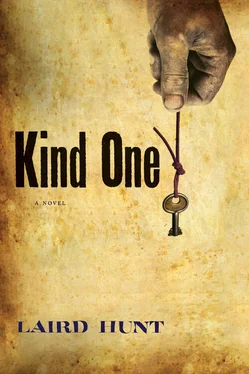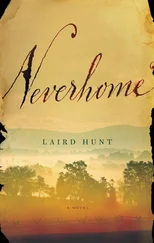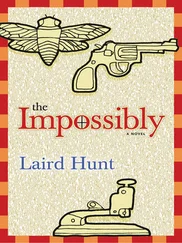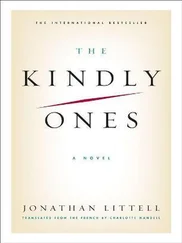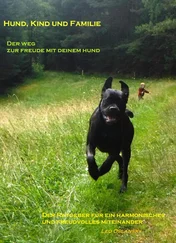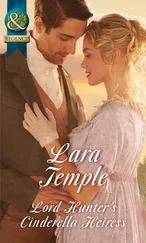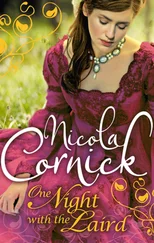“Inside the tree the sun was warm and there were soft grasses and a stream trickled by. There were sheep in the fields and flowers blooming and fat bees buzzed between them. An old man sat astride a mule and smiled down at the onion. ‘You may stay here for ten years but must never ask for more,’ he said, then rode away. The onion changed himself back into an onion and pulled the stone out of his pocket and made it into his wife again. ‘We can live here for ten years.’ ‘Yes,’ she said. They built a small house and planted a garden. They sat quietly together in the evenings. They lay down on soft blankets woven from cotton that grew wild in the hills. Once he tried to kill one of the sheep, but it scampered away laughing. So they ate that which they grew. By and by his wife had children. One after the other. The children poked sticks in the stream and played in the fields and tamed the sheep.
“When the ten years were almost up, the onion climbed onto one of the sheep and rode off in search of the man who had told them they could stay. He rode for weeks. Once he thought he saw the one he sought and called out to him to let his family stay. Immediately the onion became confused and could not find his way back to his house by the stream. His wife and children by the stream. Beneath him the sheep baaed and died and disappeared. A cunning darkness crept up. The onion heard his master’s laugh. It was hot in the hollow of the tree where the onion was hiding, and pig fat ran from his pocket. His apples were gone, his pone and bacon were gone, he had no oyster shell, his flour was soaked with fat.
“That night the onion slept in the coal cellar with iron on his ankle and his eyes shut from bruising. The next week the onion and his fellows rode out of Louisville in a procession. The onion wore a yoke and strained with the others to pull his master’s wagon. He wore chains and was given nothing to eat.”
“And what happened to the onion in the end?” Bennett Marsden said when Alcofibras had finished.
“I already showed you,” Alcofibras said, holding up the skinned onion.
“So you did, so you did,” said Bennett Marsden and roared, and I called for the girls to come back in and sent Alcofibras and his onion away again.
“Did you know my husband, Mr. Linus Lancaster, in Louisville, then?” I said after I had found my hosting voice, which had gotten lost in that wood with its pigs and sheep and furies.
“Yes, I knew him,” Bennett Marsden said. He said this like it was something to say and laughed at the end of it. When he had finished his laugh, he said Alcofibras hadn’t lost any of his storytelling style, and I asked him which of Alcofibras’s stories he had heard, told him “Black Bark” and “Wet Dough” were my favorites, but he didn’t respond, just looked far away for a while, then asked me for some of Linus Lancaster’s tobacco. I sent Cleome out to fetch it. When she was back with it the kitchen seemed crowded, so I sent her away. Bennett Marsden watched her go out the door. When he had started up his smoking, he pushed his hat back on his head and pointed over at Zinnia, who was stirring her oyster and apple concoction at the long table by the wall.
“I knew the mother to that one and the other too. There was about twice as much to her in terms of dimension, physically speaking, as to either one of these, but she had a pretty face like they do.”
“Was she also in my husband’s service?”
“That’s one way to sum it up.”
“And did she pass?”
“It was the fever took her off is the story got told. A bad gust. She wasn’t the only one that fever struck down.”
Zinnia did not turn when he said this. She did not stop stirring the soup either. Bennett Marsden then showed us a trick about how he could pull his lips back and put his spoon into his mouth through the teeth he was missing on one side. He laughed at his own trick, and I laughed too. Then he turned and asked, though there wasn’t much question to it, if I was the new lady of the house. I reckoned he was looking at me and thinking of Linus Lancaster’s dearly departed, so I straightened up and smoothed my skirt in my lap and asked him if he had known that lady who had preceded me. He gave me a kind of squint when I asked this, then gave it over at Zinnia, then squinted at me again. Then he called over to Zinnia for another spoon and showed us how the trick could be done with two at once.
“Yes ma’am, I knew her,” he said when he had completed his trick.
Bennett Marsden laughed his laugh and drank, and the evening found some tolerable way to complete itself. When we had him into Linus Lancaster’s bed, I asked Zinnia to explain the poor consideration she had tended toward a friend of Linus Lancaster’s from the old days, and she didn’t answer, just looked down at me, so I hit her on the side of the head with the wooden bowl I was holding and she went down on one big knee and stayed there bleeding until I told her to get up.
The next morning Bennett Marsden said he couldn’t wait for Linus Lancaster, but that I should extend his kindest regards and memories of the olden days and their business dealings together, especially their business dealings together, the good and the bad. Then he and his two help left back down the lane, and I told Alcofibras that his Draper Man had come and gone and he ought to feel just like a fool for calling him that and for inventing tall tales about pig fat and magic trees, but Alcofibras would not answer. He walked away, and as he walked away another one of his stories came to me. There wasn’t much to it. It was about a piece of red rope. The whole of the story was that sometimes that piece of red rope lying there without anybody to touch it would move.
Two days later Linus Lancaster came home, and when he heard that his old friend from Louisville, Bennett Marsden, had come to call and had spent the night in his bed, he tied Alcofibras to the oak tree by the barn and whipped him until his back was a sheet of crimson cloth.
We all of us were directed to form up a line and look on while the whipping of Alcofibras was conducted. I had first place in the line because of my standing. Horace and Ulysses stood next to me and Zinnia and Cleome were at the end. Not a one of them said a word. Linus Lancaster had explained to me that Alcofibras should have never let that Bennett Marsden onto the property when he wasn’t there. That Bennett Marsden was a liar and a disreputable individual and should have never been granted access to his piece of paradise while he, Linus Lancaster, was abroad. I was excused from the matter because I had never known that filthy cheat Bennett Marsden in the old days as Alcofibras had. I should have known better than to let anyone into the house when he wasn’t there, and should have been able to judge the quality of the character of the man I had let sleep in his bed and smoke up his tobacco, but it was Alcofibras had to answer.
As that whipping went on you could hear pigs they hadn’t sold off at it in the dusk light at the corners of everything, and out over the field you could see tornadoes of evening birds harrowing the insects.
“You must stop now, Husband,” I whispered at one point. I know the four of them next to me heard this. I also know that Linus Lancaster did not.
When Alcofibras was dead of the crimson cloth on his back, Linus Lancaster had Horace and Ulysses carry him out to the woods for the pigs we had been hearing, but I know that when Horace and Ulysses got Alcofibras out there they took sticks and scraped a hole and buried him and covered the place with rocks so the pigs couldn’t dig him up.
That night, as I lay there in my room while Linus Lancaster paid his visits, I couldn’t conjure up any daisy fields. I couldn’t conjure up any castles in the clouds or lemonade. I couldn’t see my way back to my father’s house with its goose pond and my corner bed. It was just lengths of red rope, rope that shouldn’t be moving, rope untouched that was slithering over the walls and windows, filling my mouth and apron pockets, wrapping field and flower, tree and bush, bird and pig.
Читать дальше
